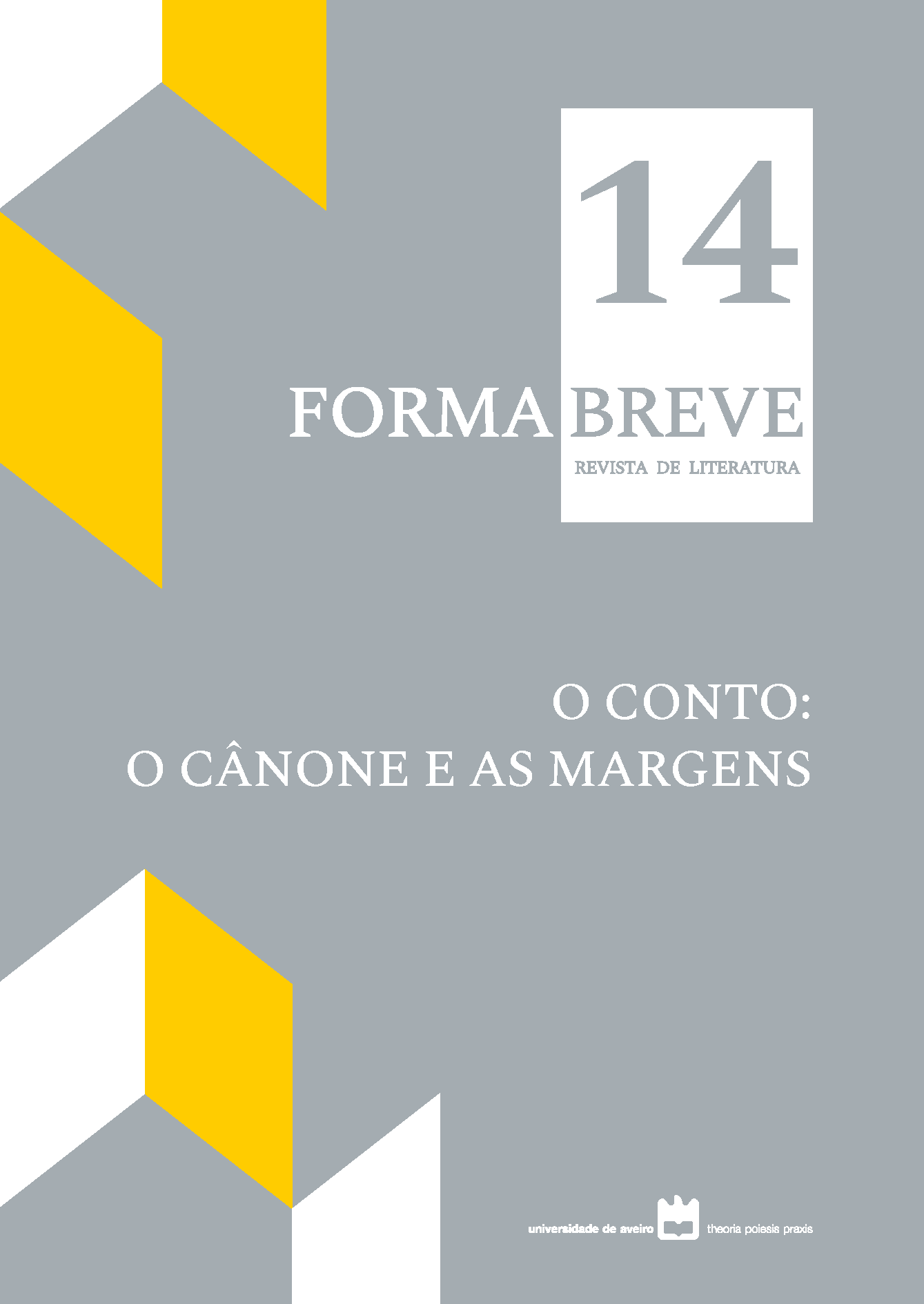Anti-contos: de Diderot a Sena
Resumo
Análise do modo como dois textos (“Conto brevíssimo”, de Jorge de Sena, e “Isto não é um conto”, de Denis Diderot) exploram a subversão de diferentes princípios narrativos do conto, jogando não só com os seus elementos mais firmemente estabelecidos como também com as expectativas do leitor, frustrando-as de forma mais ou menos deliberada. O conto de Sena começa – e termina – com uma (auto)reflexão sobre o tema da brevidade no conto e das implicações desta tensão no próprio acto de narrar, deixando apenas um brevíssimo espaço para a exposição da narrativa, num movimento que o mesmo identifica como “desistência
de narrar”. No conto de Diderot, o autor aproveita-se das expectativas do leitor, antecipando desde logo um desfecho que irá, no final, corresponder à totalidade das premissas reveladas. A ausência de um elemento de perturbação, num texto em que acontece exactamente aquilo que o narrador avisa no seu início, torna-se ensurdecedora e, ao mesmo tempo, provocante, se considerarmos a advertência traduzida quer no seu título como na passagem subsequente: “ou que é, em caso de dúvida, um mau conto”. Em ambos os casos está subjacente – e em grande parte através do uso de mecanismos de ironia – uma provocação que expõe a necessidade da sua reinterpretação à luz dos respectivos princípios que procuram fracturar.








